Introduction & Analysis
This collection of open-source English-language news articles published over the past week highlights significant events and issues concerning Myanmar. They present a snapshot of the country's safety and security landscape.
- Myanmar's prolonged civil conflict, initiated by the 2021 military coup, has led to significant displacement, civilian casualties from ongoing airstrikes, and increased militarization of once-peaceful highways. An incident on July 12 saw over 500 civilians and soldiers flee into Thailand after a KNLA assault on a military base, with some Myanmar soldiers reportedly defecting.
- The conflict is further complicated by inter-factional fighting among Chin resistance groups, while the junta employs digital surveillance at checkpoints, orders home demolitions, and intensifies its air campaign against resistance strongholds.
- Seeking to overcome international isolation and sanctions, the junta plans elections for late 2025 or early 2026 despite widespread opposition, and strengthens ties with Russia and Belarus, including establishing a new space agency and pursuing a trilateral trade corridor through India.
- Meanwhile, environmental concerns are mounting due to unregulated rare earth and gold mining activities in areas like Wa State, primarily by Chinese companies, leading to severe cross-border river pollution; this is compounded by challenges in post-earthquake reconstruction plagued by corruption, lack of skilled workers, and material shortages.
ASEAN
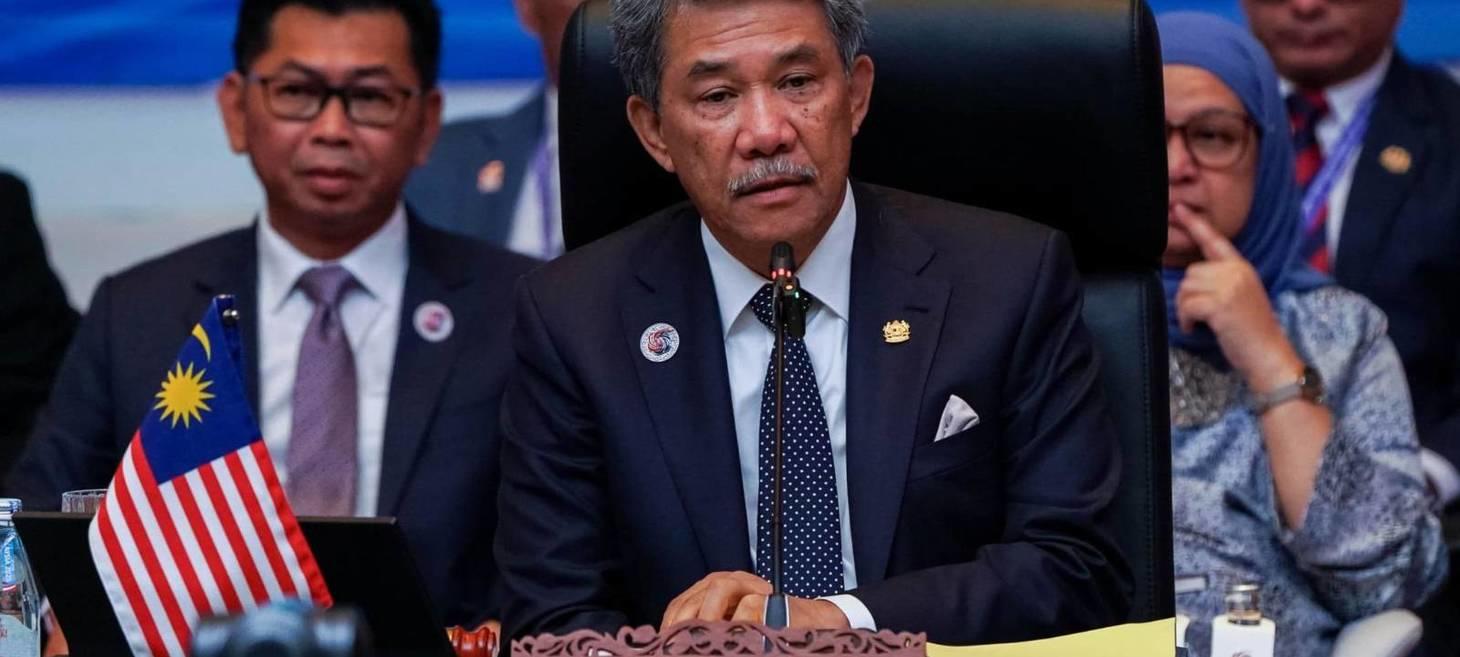
SAC’S PLANNED ELECTIONS: Will the junta bother to listen to ASEAN’s wish list?
The State Administration Council (SAC) is planning elections for late 2025 or early 2026, which the Legal Aid Network (LAN) views as an attempt to legitimize military rule and a way to maintain power, unlikely to gain international recognition from bodies like the UN, EU, or ASEAN due to the junta's lack of democratic credentials and international criticism. ASEAN has expressed deep concern over the escalating conflict and humanitarian situation in Myanmar, outlining a "wish list" for the junta that includes the release of political prisoners, a ceasefire, and unhindered humanitarian aid, a stance contrasting Malaysia's initial call for a conducive election environment. Given that the junta controls less than 40% of the country, the most likely future scenario for Myanmar is a prolonged stalemate or potential fragmentation into smaller, autonomous regions, rather than the SAC gaining a decisive upper hand.
Census & Elections
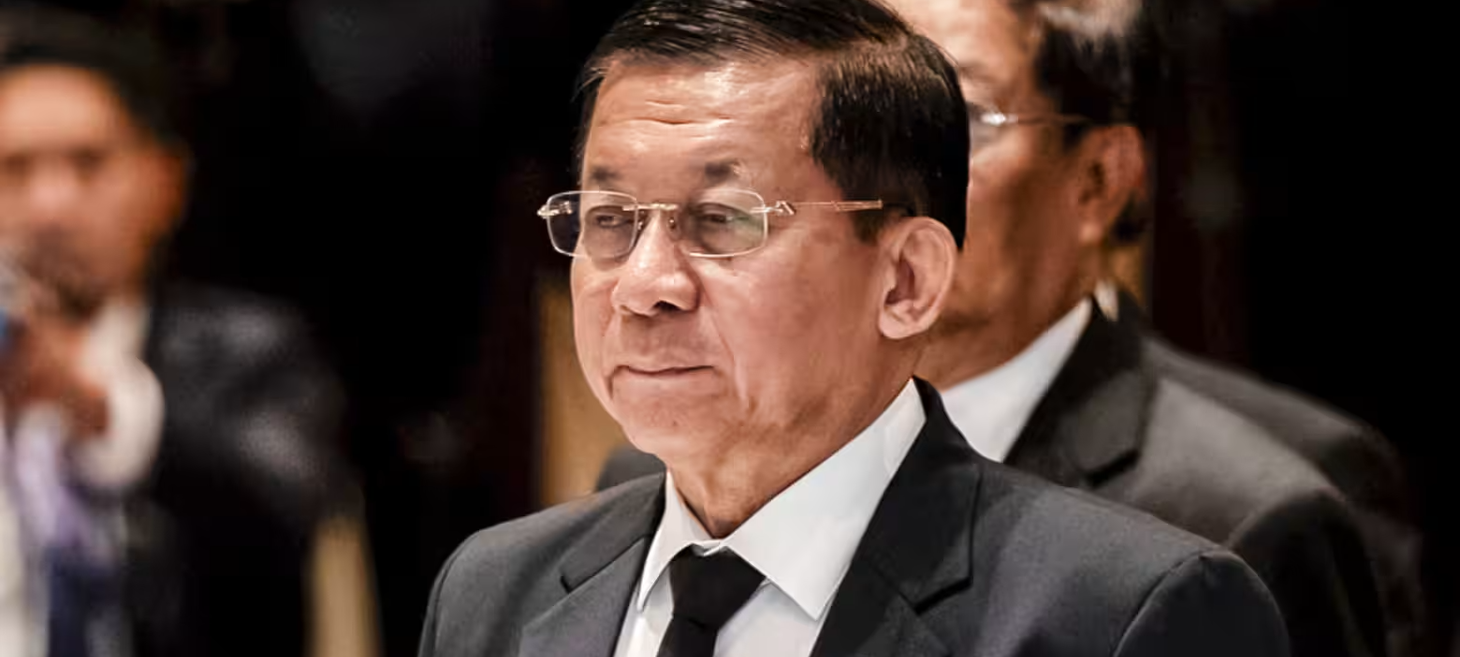
Myanmar military's election plan faces widespread boycott
Myanmar's military is pushing forward with a plan to hold a general election in December or January, as confirmed by regime leader Senior Gen. Min Aung Hlaing. This election plan is seen by observers as an attempt by the military regime to legitimize its rule. Despite facing widespread opposition, including from its ASEAN neighbors, analysts believe the election will likely not end the civil war and ethnic divisions ravaging the country.
Conflict
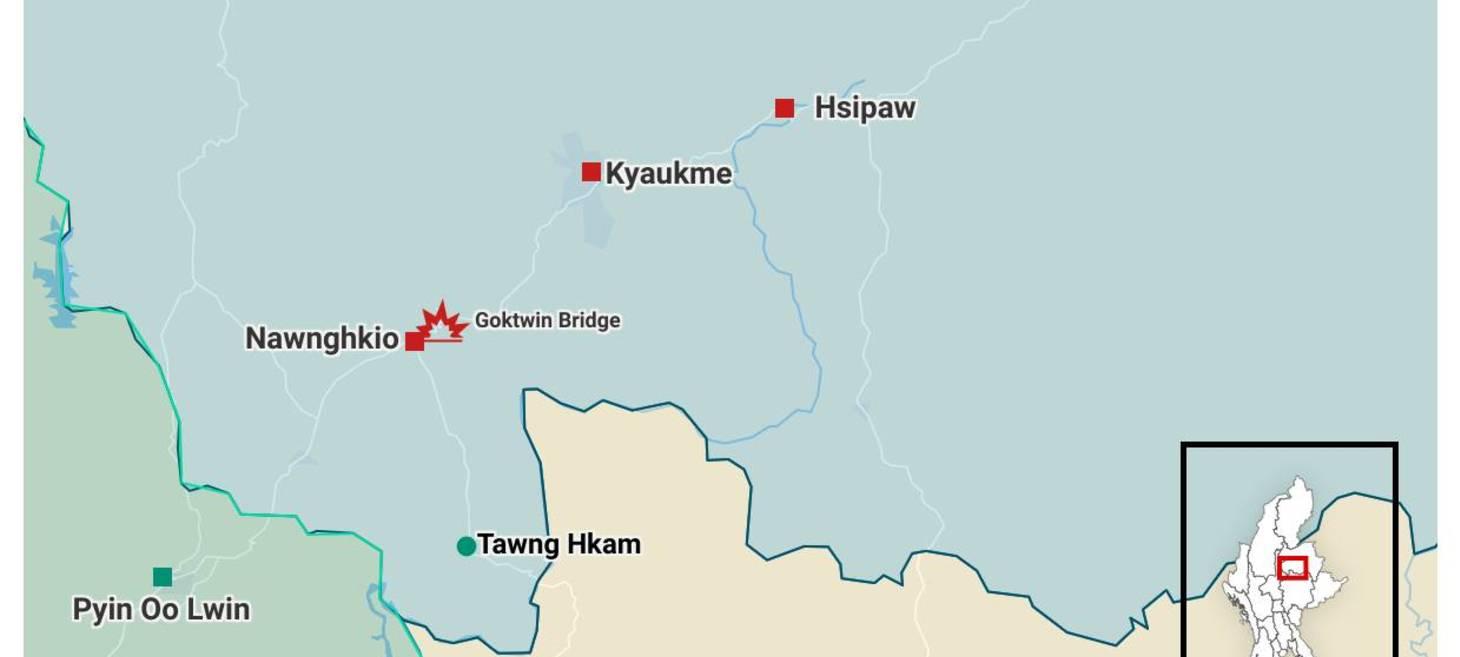
With Myanmar military close to retaking Nawnghkio, resistance faces second major setback
The Myanmar military is reportedly close to retaking Nawnghkio in northern Shan State. This imminent recapture is anticipated to be a strategic setback and a significant blow to the morale of the resistance movement against military rule in the country. The sources also indicate recent events such as junta airstrikes killing civilians in resistance strongholds, Hsipaw, and Mawchi, though in the past, the Myanmar military had been losing ground to anti-junta forces in northern Shan State.
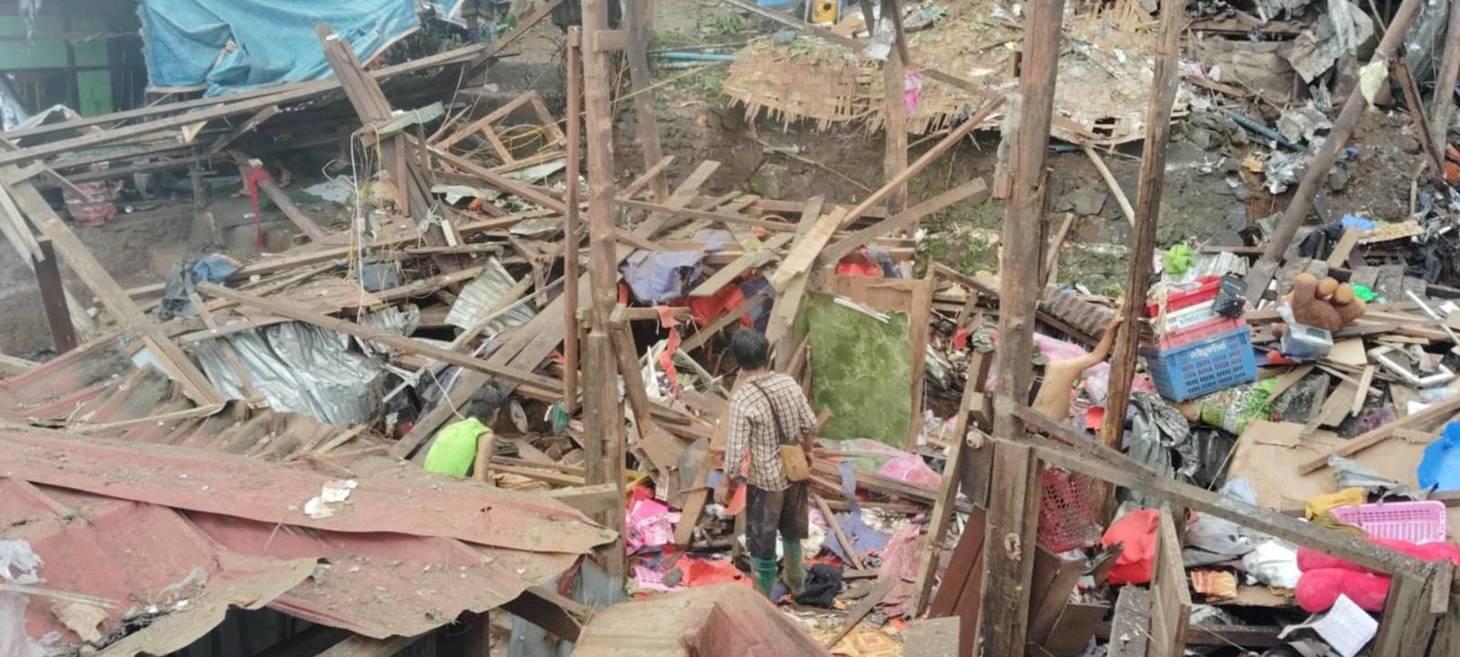
Junta airstrikes kill at least 15 across resistance strongholds in Myanmar
Junta airstrikes have resulted in at least 15 deaths across resistance strongholds in Myanmar, with attacks targeting towns and villages in Mandalay, Sagaing, Karenni, and Shan states. One specific incident involved the killing of at least six civilians—five women and one man—in Mawchee, Karenni State, due to these airstrikes. These deadly attacks occurred over two days, as reported on July 15, 2025.
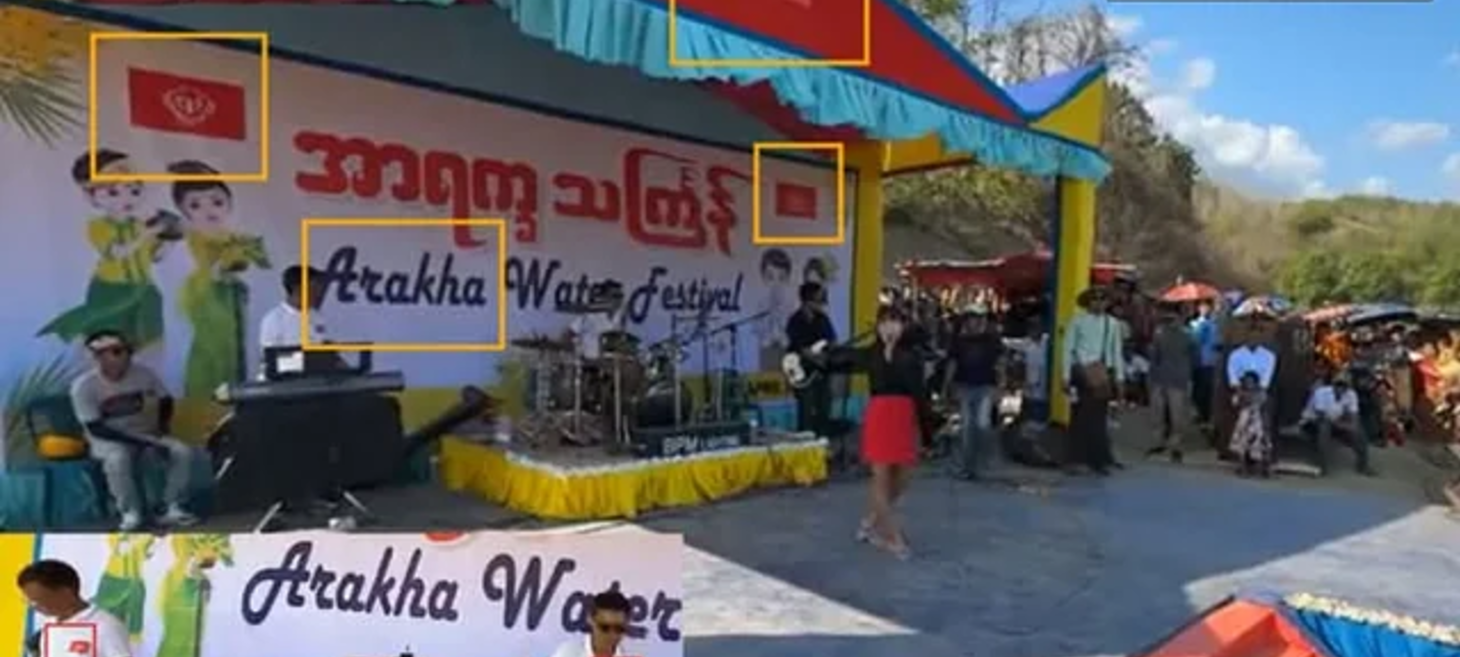
Geopolitical and Strategic Implications of the Arakan Army’s Ascension in Myanmar’s Rakhine State
The Arakan Army (AA), an ethno-nationalist rebel group, has solidified its control over approximately 90 percent of Myanmar's Rakhine State, including the entire border with Bangladesh, establishing a proto-state with parallel governance and posing the most significant threat to the ruling junta. While the AA has gained popularity among the Rakhine people and invited foreign investment, it has also been accused of persecuting the Rohingya minority and engaging in activities like abducting Bangladeshi fishermen and planting mines, creating complex security and repatriation challenges for Bangladesh. The AA's ascension has also created geopolitical concerns for China and India, who have substantial infrastructure investments in Rakhine and are now strengthening their relationships with the AA, causing the internationally isolated junta to seek closer ties with Russia.
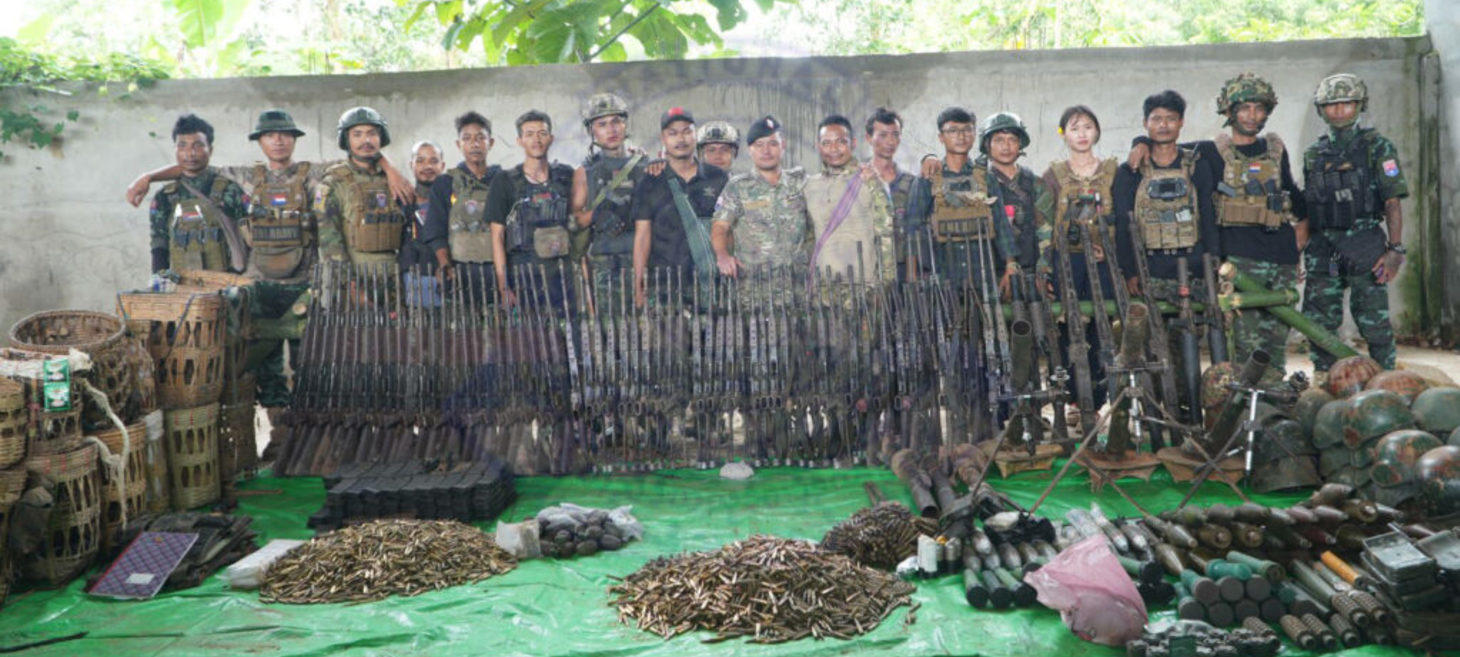
Myanmar Junta’s ‘Living Fence’ on Thai Border Falls to Karen Resistance
Karen resistance forces, including the Karen National Liberation Army (KNLA) and People Defense Force (PDF), recently seized the Ukayit Hta outpost on the Myanmar-Thai border in Myawaddy Township, after approximately 100 junta soldiers fled into Thailand. This outpost, known as the “Living Fence” from a 2024 junta propaganda film that depicted it as impregnable, guarded a key road junction and its fall is seen as a humiliating defeat for the junta. With Ukayit Hta captured, the Karen resistance is now attacking the two remaining junta bases in the area, Wawlay Strategic Outpost and Hte Thelei Guard Outpost, expecting them to fall soon as they relied on Ukayit Hta for support.
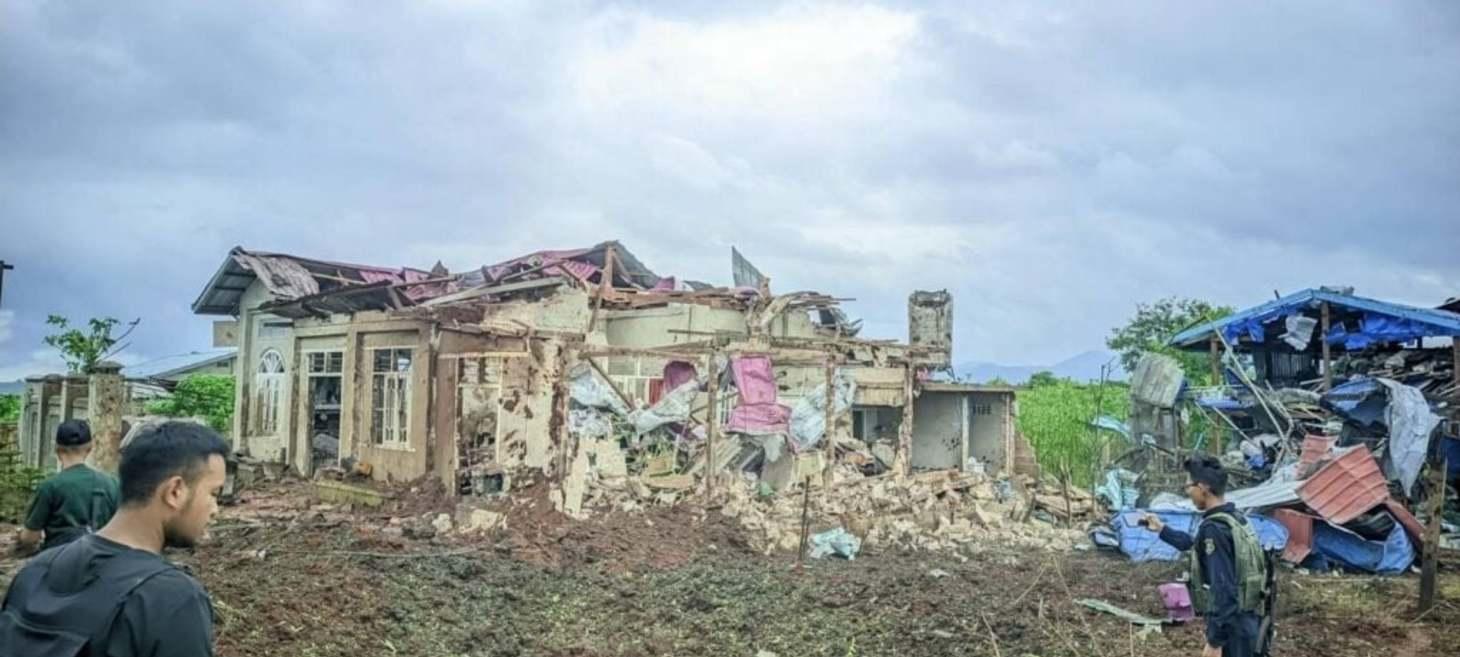
SAC Airstrikes Hit Displacement Site in Kyaukme, Causing Civilian Casualties
The State Administration Council (SAC) carried out airstrikes on Kyaukme town in northern Shan State on July 11, 2025, targeting areas under the control of the Ta'ang National Liberation Army (TNLA). These strikes reportedly injured civilians, including internally displaced persons (IDPs) sheltering at the Kaw Li Hotel in Hkomone village, resulting in one death and one injury to a family from Nawnghkio. The recent aerial assaults mark a sharp escalation in northern Shan State, following earlier attacks on July 9 that also killed and injured civilians in TNLA-held areas like Pan Ma Htike village near Mogok.
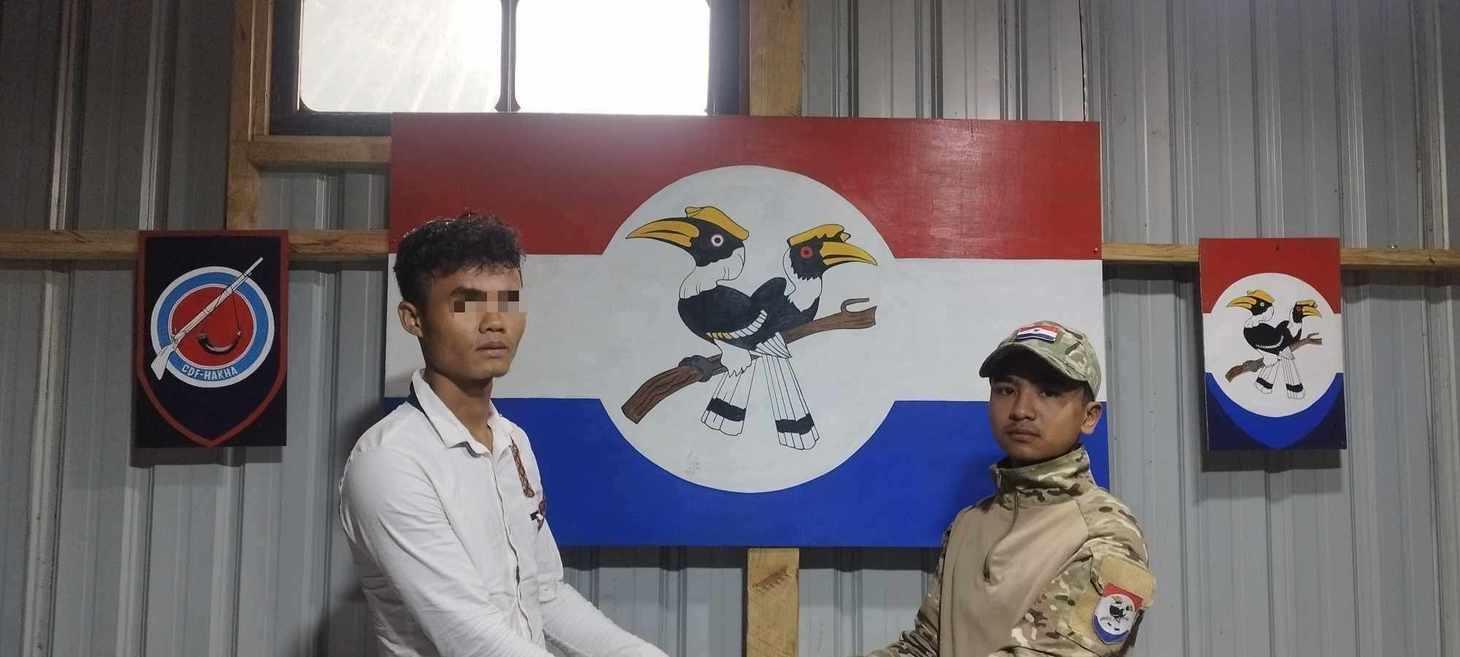
Junta Police Officer Defects to Hakha CDF
A junta police officer stationed in Hakha City defected to the Hakha Chinland Defence Force (CDF) on July 6, 2025, bringing a G3 rifle and a walkie-talkie. The Hakha CDF, which has encircled the junta-controlled Hakha City, warmly welcomed the defector, providing a cash reward, ensuring his safety, and assisting with his travel arrangements. Since the beginning of 2025, 20 junta police officers and soldiers from Hakha City have defected to resistance forces, with Hakha CDF continuing to invite and assist defectors as they plan to take the city.
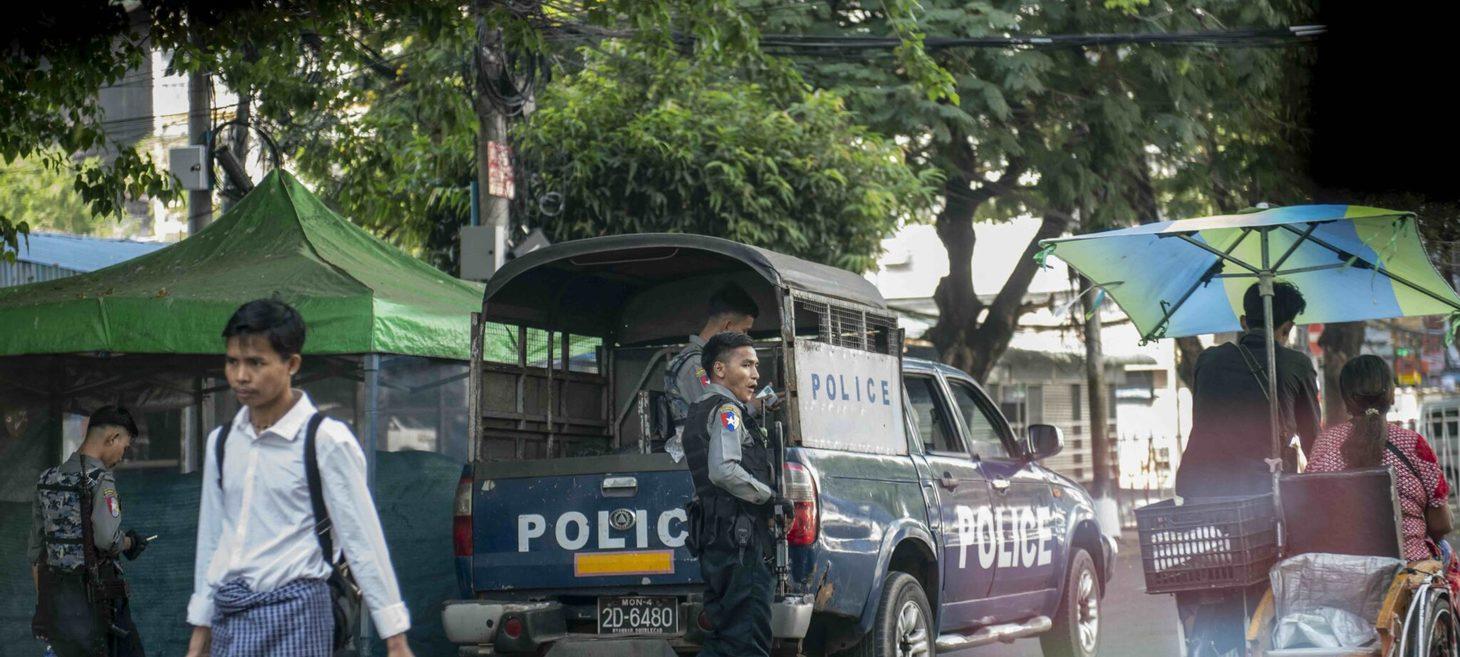
A trip down the old Yangon-Mandalay highway, now militarised beyond recognition
The old Yangon-Mandalay highway has become militarized beyond recognition, transforming what were once peaceful routes connecting towns into pathways dominated by fear, extortion, and armed conflict. This situation is part of a broader context of escalating violence across Myanmar, featuring junta airstrikes in resistance strongholds and setbacks for resistance forces. The ongoing conflict also contributes to significant social issues, including mounting hardships for internally displaced persons (IDPs) and the exploitation of Myanmar migrants.
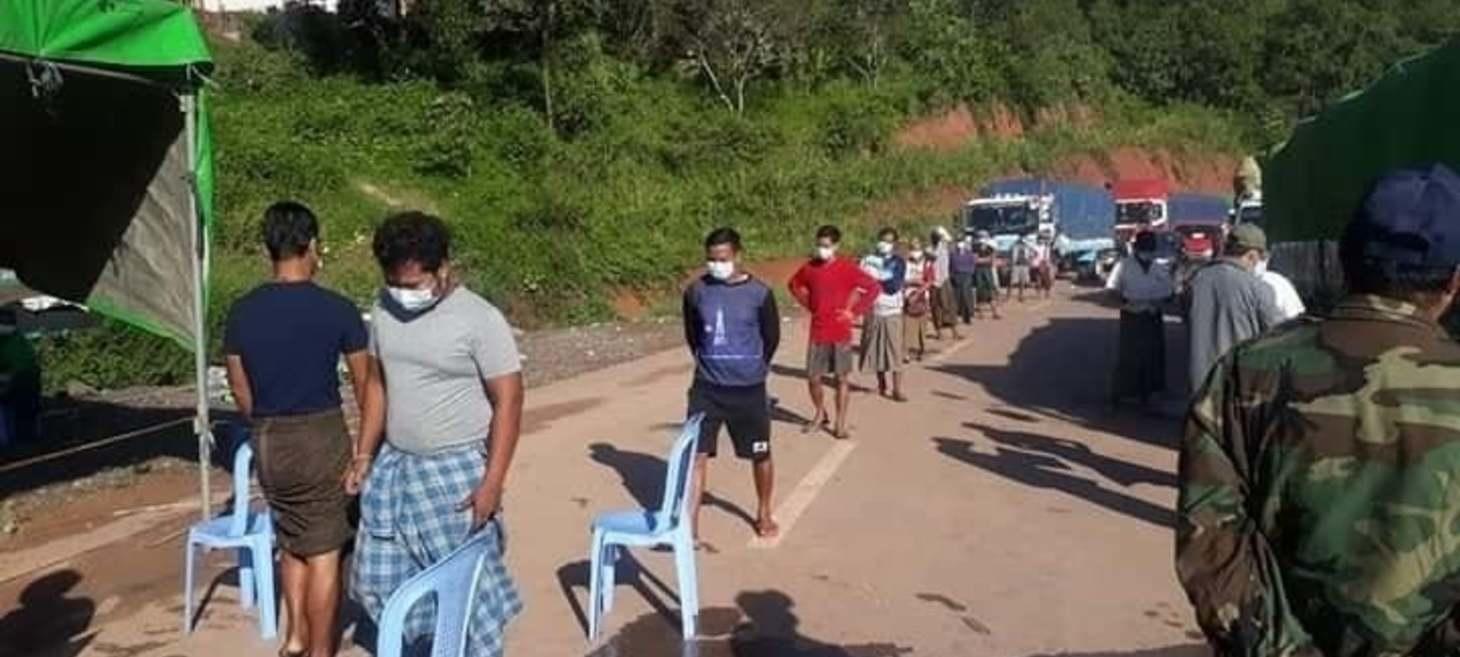
Woman Detained at Kalaw Checkpoint Over Alleged Links to Resistance Funding
A 29-year-old woman, Thet Htar Thu Zar, was detained at a military checkpoint in Kalaw Township, Shan State, on July 2, 2025, after surveillance software allegedly flagged her for links to anti-junta resistance groups. The Person Scrutinization and Monitoring System (PSMS), reportedly used to cross-reference identity numbers with government databases and suspected affiliations, linked her to a criminal record related to financial support for the People’s Defense Forces (PDFs), leading to charges under Section 50-N of the Anti-Terrorism Law. This arrest is part of a growing pattern of digital surveillance and intensified scrutiny at military checkpoints across Shan State and other parts of Myanmar, which human rights groups warn is being used to criminalize dissent and restrict fundamental freedoms.
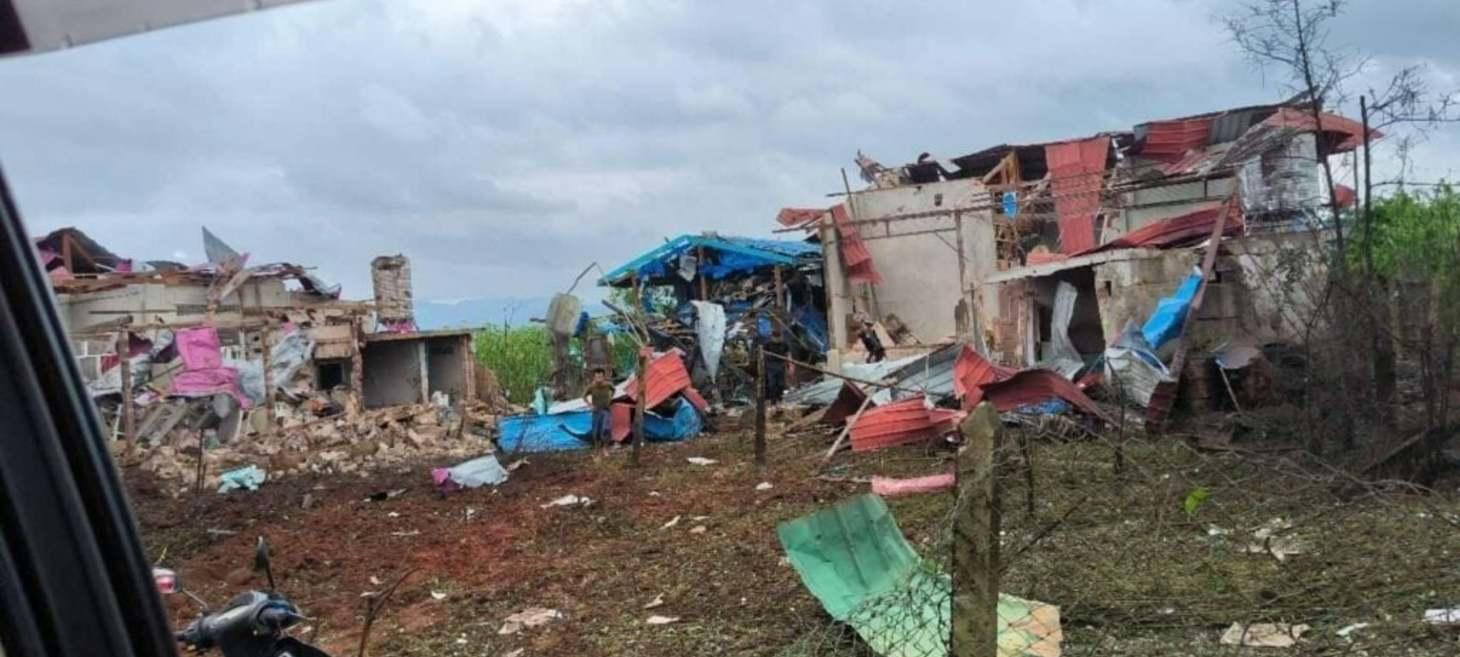
Aerial Bombardments Hit Kyaukme and Mongkut, Killing Civilians
Recent aerial bombardments in Kyaukme and Mongkut townships, areas controlled by the Ta’ang National Liberation Army (TNLA), have resulted in civilian casualties, with at least three people killed in attacks targeting a nursing home, a Border Ethnic Development Office, and a private high school on July 8. These incidents follow earlier military bombardments in late June that struck Kyaukme town multiple times, killing five civilians and injuring 21, and damaging the Kan Baw Za Shan monastery. The ongoing aerial offensives in Shan State are exacerbating civilian suffering, triggering further displacement and instability, and have prompted humanitarian groups to warn of deteriorating conditions as attacks on residential and public facilities intensify.
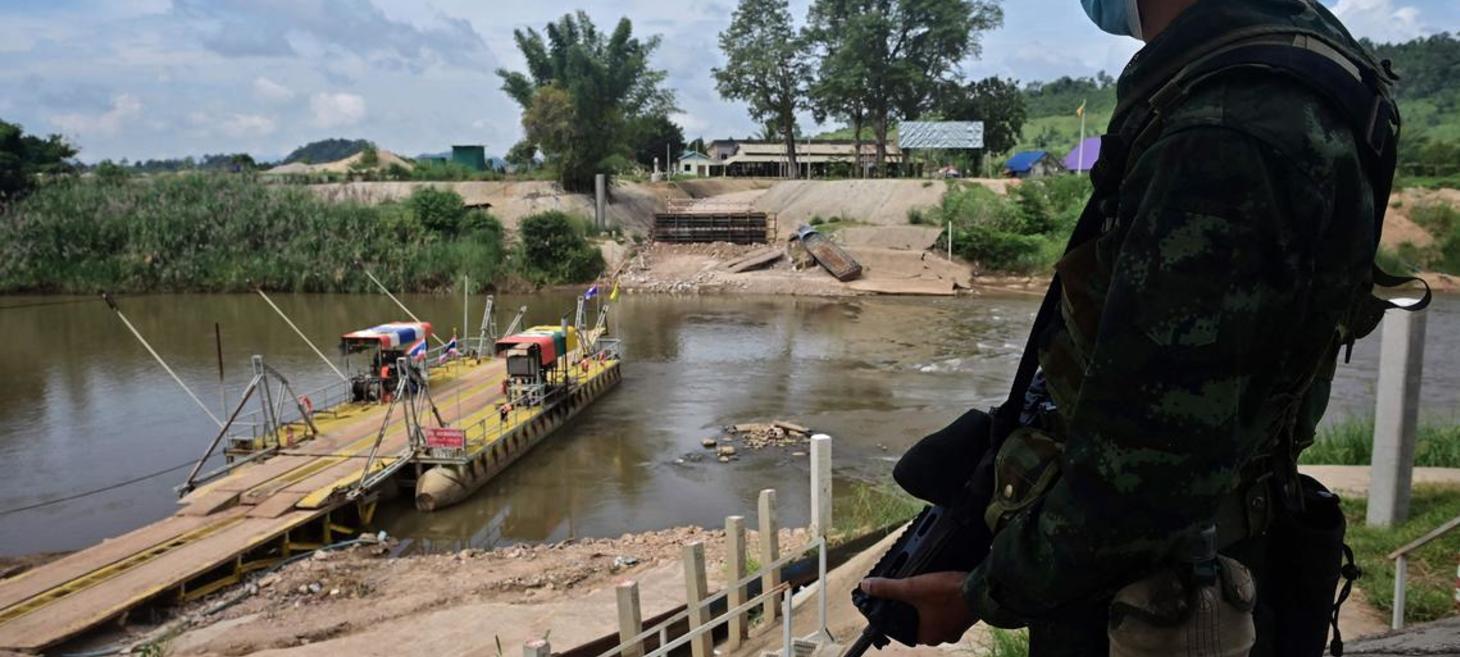
Hundreds of Myanmar troops and civilians flee across Thai border
Myanmar has been embroiled in a civil conflict since a 2021 military coup, leading to a recent incident on July 12 where over 500 civilians and soldiers fled across the Thai border following an ethnic fighter assault on a military base. The attack, carried out by the Karen National Liberation Army (KNLA) in Kayin state, saw Myanmar soldiers unable to defend their position, with some reportedly defecting to joint forces while others fled. Consequently, 100 Myanmar soldiers and 467 civilians crossed into Thailand, where they were disarmed and provided with humanitarian aid by Thai military and police, who also increased border patrols.
Crime & Narcotics

Indonesia cracks human trafficking case linked to Myanmar
An investigation by Indonesia's National Police has uncovered an international human trafficking network linked to Myanmar, leading to the arrest of suspect HR after a victim was repatriated in March. The syndicate lured job seekers with fake overseas employment offers, such as a cryptocurrency administrator position in the UAE with a promised salary of US$800, but instead trafficked victims to Myanmar via Thailand. This case is part of a broader issue, with Indonesia actively repatriating migrant workers from conflict-affected areas in Myanmar and implementing various measures to combat human trafficking, including training, prevention pacts, and international cooperation.
Economy

Japanese businesses withdraw from television venture with junta-connected media company
Three Japanese media companies, including subsidiaries backed by government funding, are withdrawing from Dream Vision Co., Ltd., a joint television production venture with Myanmar's Shwe Thanlwin Group. This decision follows concerns raised by civil society groups regarding the venture's co-owner, Kyaw Win, whom they characterize as a military junta propagandist profiting from the partnership. A spokesperson for Justice For Myanmar (JFM) highlighted worries about the lack of transparency regarding share transfer and the potential for profits to benefit supporters of the military regime, casting uncertainty on the Japanese investors' fulfillment of human rights obligations.
Ethnic Issues
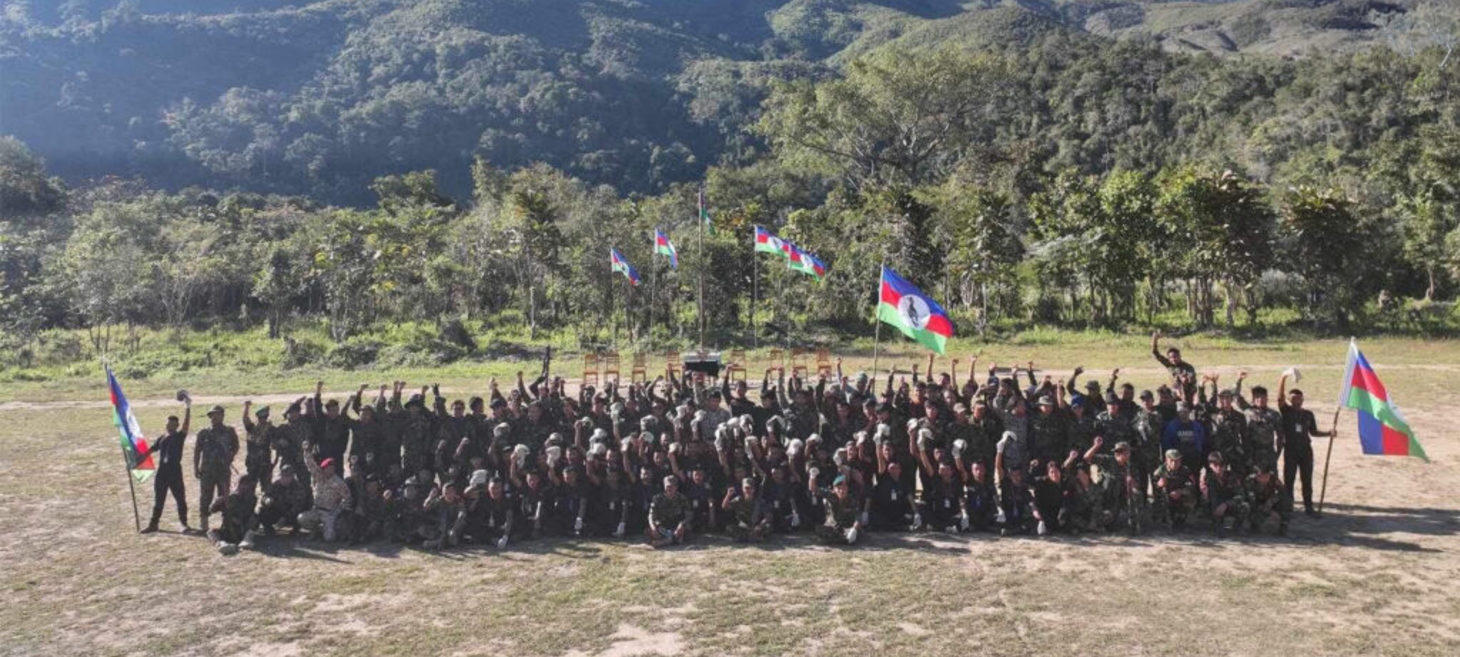
Chin Resistance Tensions Boil Over as CNA Seizes Rival’s Myanmar HQ
Tensions have escalated between rival ethnic Chin armed groups, with the Chin National Army (CNA) reportedly seizing the Chin National Defense Force (CNDF) headquarters (Camp Rihli), an event that occurred while the CNDF was negotiating and caught them off guard. This seizure is believed to be retaliation for the CNDF’s reported capture of Rikhawdar town from CDF-Hualngoram, allies of the CNA, highlighting ongoing military tensions between the Chin Brotherhood and the Chinland Council. Consequently, Chin communities and other defense forces are urging dialogue and a peaceful resolution to these internal conflicts, emphasizing the importance of unity against the military regime and the need to prioritize the liberation of Chinland.
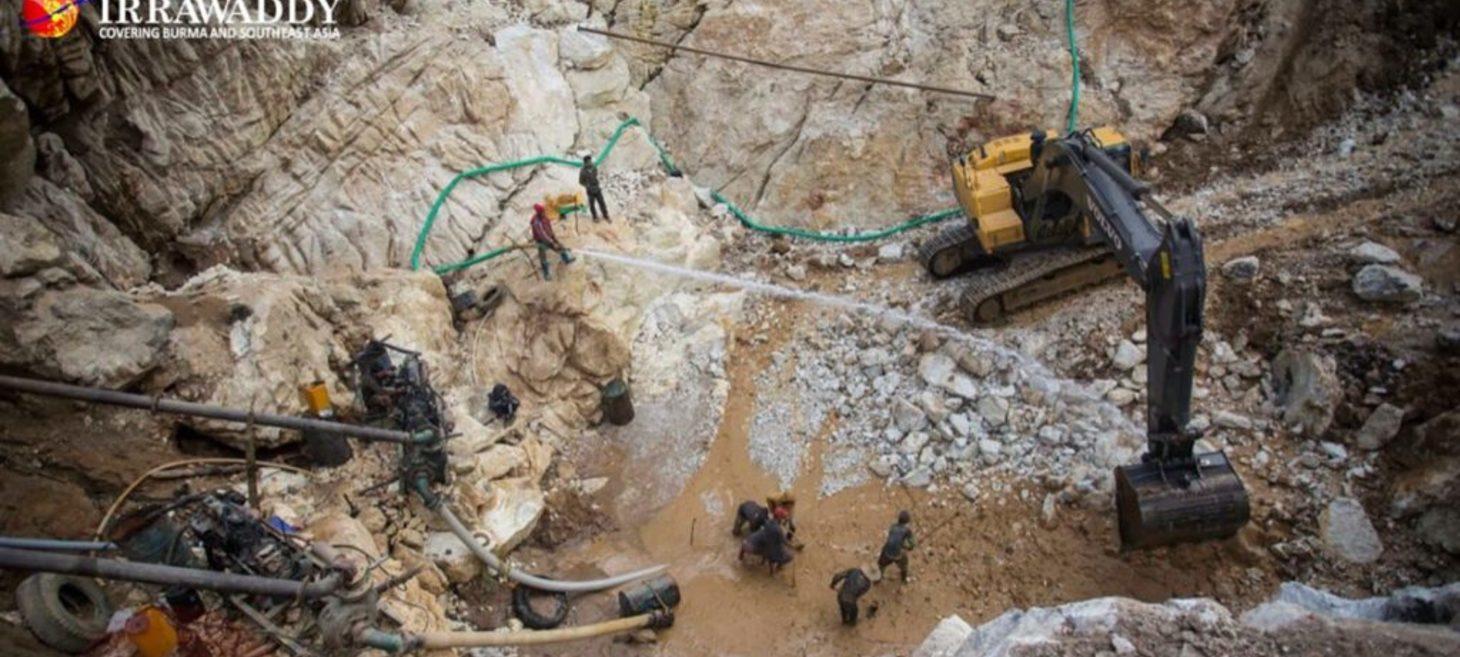
TNLA Invites Investment in Ruby and Mineral Towns Amid Myanmar Junta Onslaught
The Ta’ang National Liberation Army (TNLA) is actively inviting domestic and foreign investment in the regions it controls, despite acknowledging escalating intensified airstrikes and ground offensives from the Myanmar junta. These areas include Mogoke, a world-renowned source of rubies, as well as towns rich in zinc, lead, silver, copper, gold, silica, and those located on key border trade routes with China. Despite the TNLA offering protection and support to investors, investment levels remain very low due to significant security concerns and instability caused by ongoing junta air attacks, which have even led to the temporary closure of some mining operations.
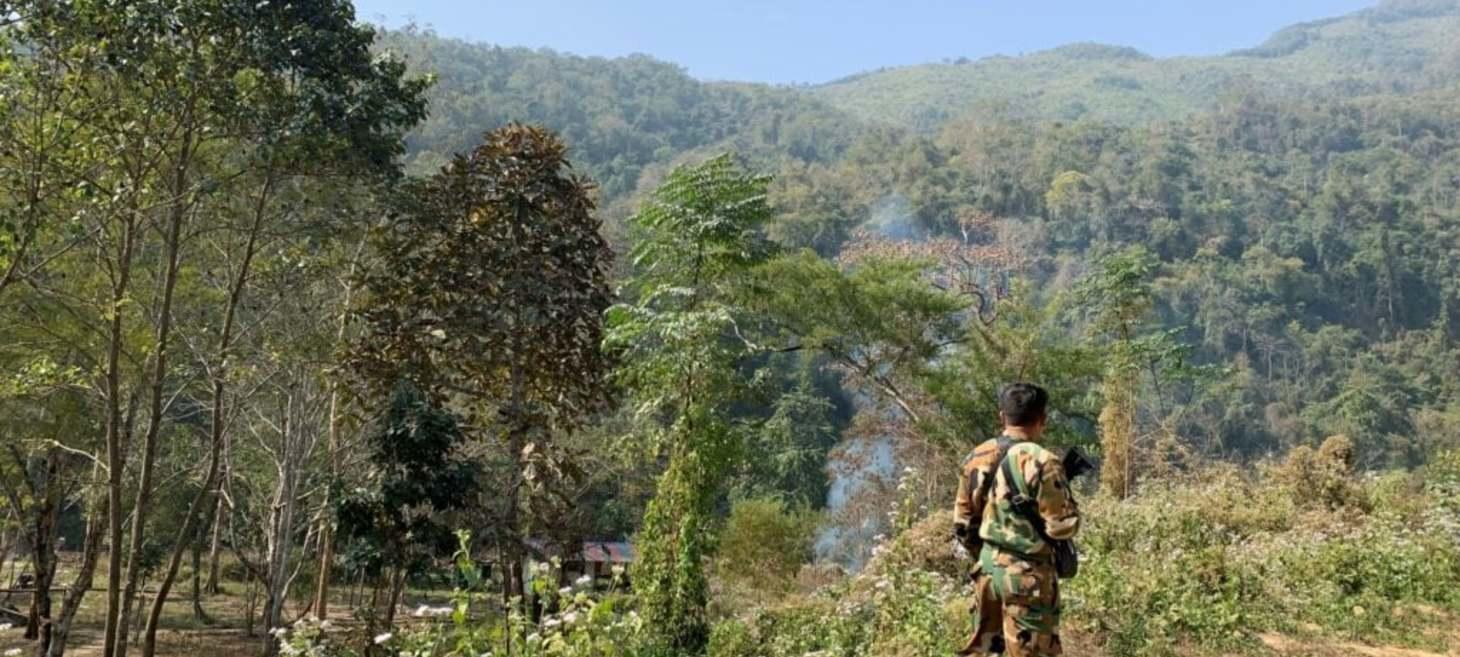
A ‘brotherly’ fight: Chin factions battle over Indian border
A deadly turf war has erupted between Chin resistance armies, specifically the Chin National Defence Force (CNDF) and the Chin Defence Force-Hualngoram (CDF-Hualngoram), which is backed by the veteran Chin National Army (CNA), over control of territory in Chin State, particularly the town of Rihkhawdar bordering India. This conflict, initiated by the CNDF's capture of Rihkhawdar and followed by retaliatory attacks from the CNA, has led to over 4,000 civilian displacements and attempts at mediation by Mizoram authorities and the National Unity Government (NUG). Despite these efforts and previous reconciliation pacts, the fighting highlights deepening factional struggles among anti-junta groups, though the CNDF's recent withdrawal from Rihkhawdar offers a potential opening for ceasefire talks.
Foreign Affairs

Myanmar and Russian Regimes Push Indian Trade Corridor to Bypass Western Sanctions
Myanmar and Russia are pushing to establish an ambitious trilateral trade corridor through India, linking Russia with Yangon Port via Mumbai Port, in an effort to bypass Western sanctions and offer an economic lifeline to both sanction-hit regimes. This proposed logistics route aims to position Yangon as a strategic transshipment hub for Russian exports to Asia, while Myanmar's junta also seeks closer ties and potential membership with regional blocs like the Eurasian Economic Union (EAEU), BRICS, and the Shanghai Cooperation Organization (SCO). India has not yet commented on the proposal, which could overlap with its ongoing Kaladan Multi-Modal Transit Transport Project, a cornerstone of its "Act East" policy designed to connect India's eastern seaboard with its remote northeastern states and foster economic integration with Southeast Asia.
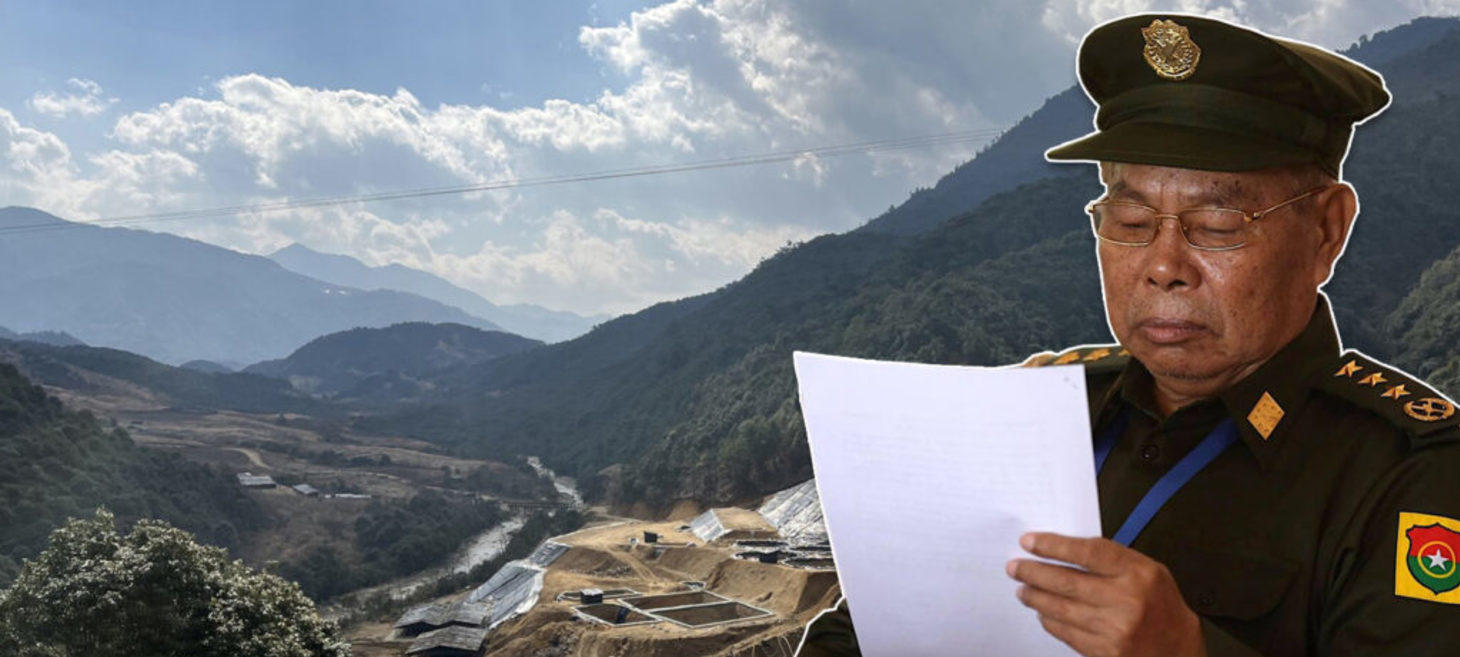
KIA Denies Rumor Chief Under House Arrest in China
Ethnic Kachin Independence Army (KIA) spokesman Colonel Naw Bu has denied rumors that its senior commander, N’Ban La, was placed under house arrest in China to pressure the armed group to halt its fighting, clarifying that General N’Ban La was on a routine medical visit. Naw Bu also rejected reports that Beijing threatened to stop purchasing rare earth minerals from KIA-controlled territory if the group continued its offensive on Bhamo, although he noted China has continuously called for a truce. Currently, KIA and allied forces are exchanging artillery strikes daily with junta troops in Bhamo, and daily clashes are occurring in the jade mining hub of Hpakant, with China being the primary buyer of both rare earth and jade from Myanmar.
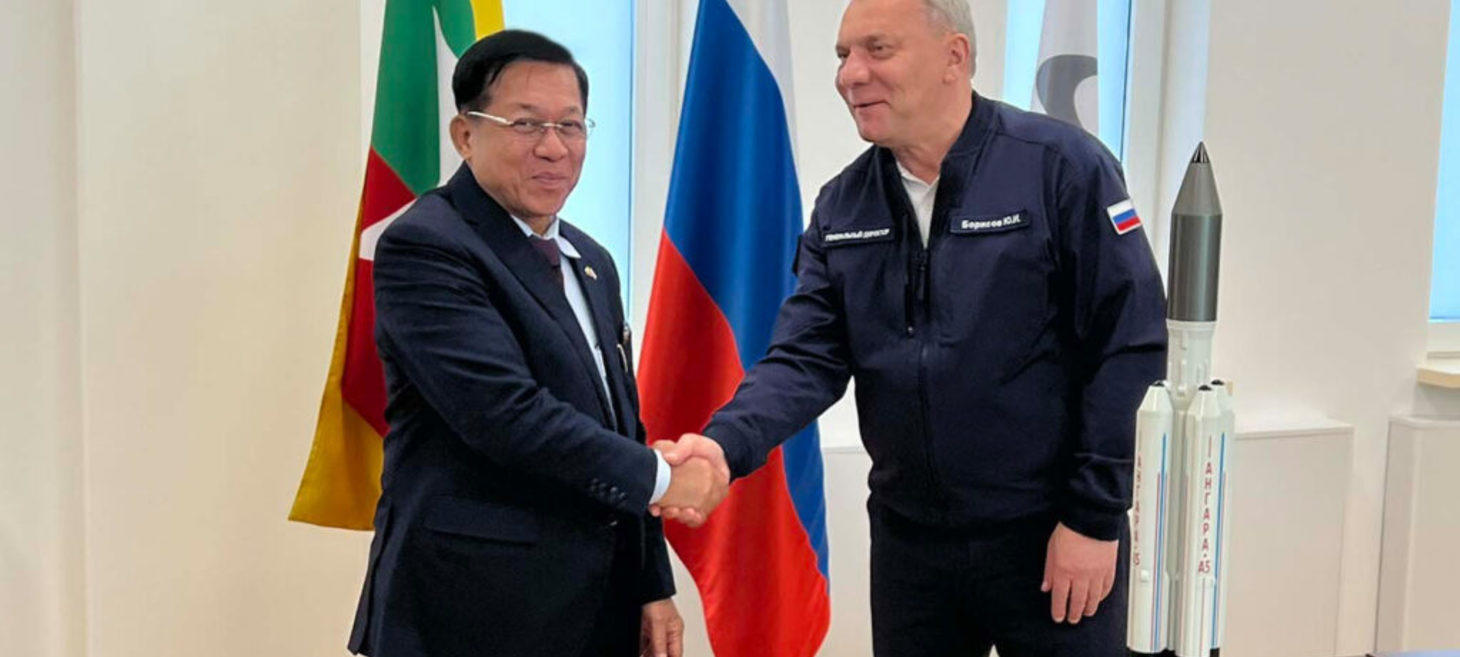
Myanmar Junta Launches Space Agency With Russian Help
Myanmar’s military regime established the Myanmar Space Agency (MSA) on June 1, following junta boss Min Aung Hlaing's visit to Moscow where several memoranda of understanding, including one on the exploration and use of outer space for peaceful purposes, were signed with Russia. The MSA is under the direct control of Min Aung Hlaing, who personally vets and approves its experts, and Russia is currently the only country cooperating with the regime on space technology, having supported the establishment of a satellite data research center in Myanmar. While the junta states the agency was created for peaceful intentions like national security and socioeconomic development, observers are concerned this collaboration will provide satellite-based intelligence support to a regime accused of indiscriminate airstrikes against civilians.
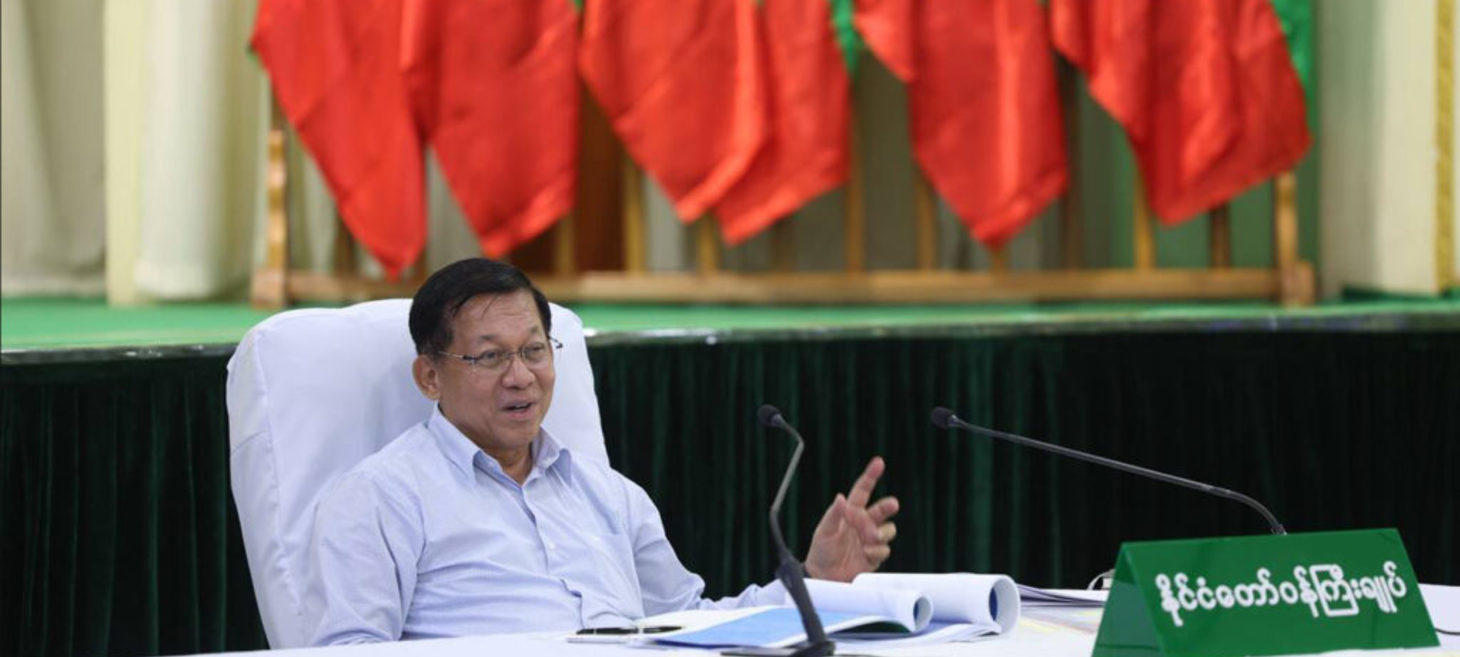
Myanmar Junta Chief Thanks Trump for Shutting Down VOA and RFA
Myanmar junta chief Min Aung Hlaing thanked U.S. President Donald Trump for shutting down American-funded broadcasters like Voice of America (VOA) and Radio Free Asia (RFA), which he referred to as "regulating broadcasting agencies and funds". These broadcasters had provided independent and factual coverage of conflict-wracked Myanmar, acting as a "thorn in his side" for the junta, which has established one of the most repressive media landscapes globally. Min Aung Hlaing also used the opportunity to ask Trump to consider easing and lifting economic sanctions on Myanmar, claiming that "assessments influenced by one-sided misinformation and distorted narratives" from the media led to their imposition.
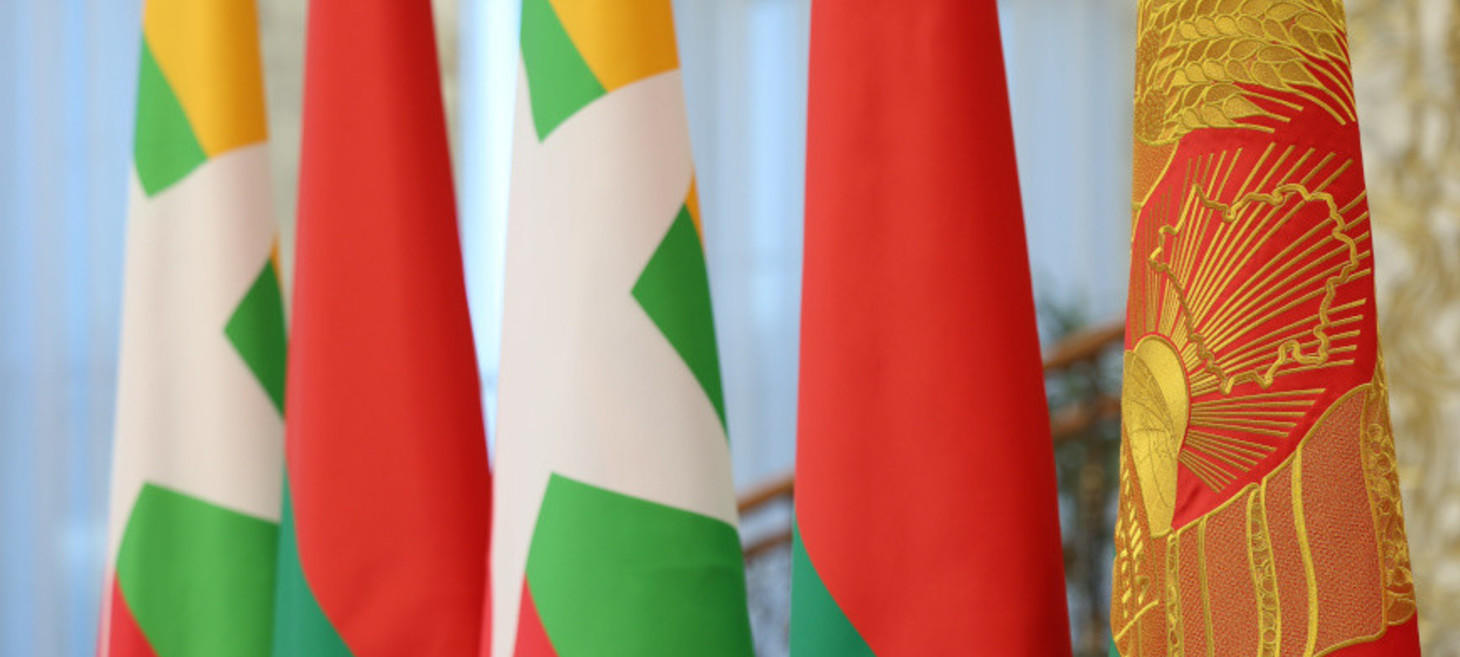
Belarus ratifies agreement with Myanmar on protection of classified information
President Aleksandr Lukashenko of Belarus ratified an agreement with Myanmar on the mutual protection of classified information on July 14, 2025. This agreement was originally signed on March 7, 2025, during the official visit of Min Aung Hlaing, Chairman of Myanmar's State Administration Council and Prime Minister, to Belarus. The purpose of this agreement is to ensure mutual protection of classified information and strengthen friendly relations, providing a legal framework for safeguarding Belarus's state secrets during bilateral cooperation with Myanmar in military, military-technical, and scientific sectors.
General News
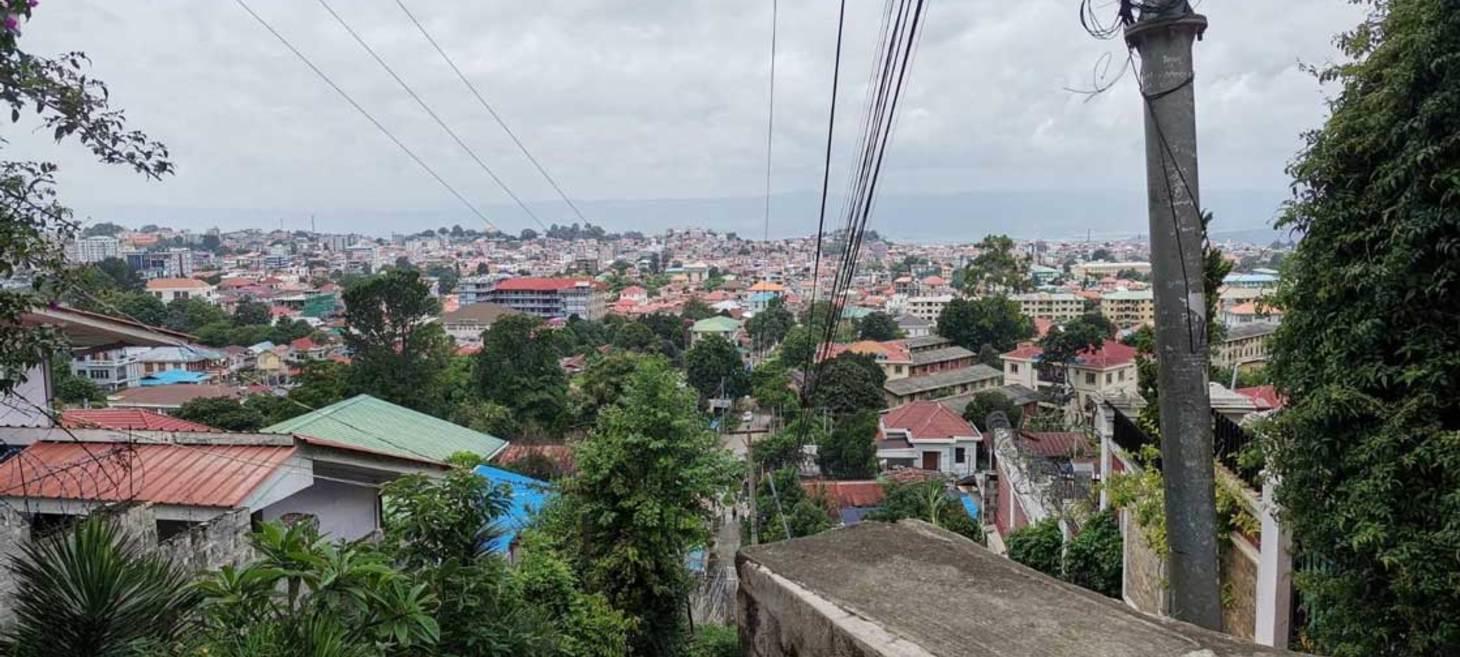
SAC Orders Demolition of Over 100 Homes in Taunggyi
The State Administration Council (SAC) has ordered the demolition of over 100 homes and shops in Taunggyi, the capital of Shan State, as part of a railway corridor clearance project initiated after the February 2021 military coup. Residents report that heavy machinery is tearing down structures, some not even directly adjacent to the railway line, with similar demolitions also occurring in Kalaw. This campaign has intensified fears of forced displacement among residents, who are facing a lack of transparency and no compensation for their destroyed homes.
Humanitarian
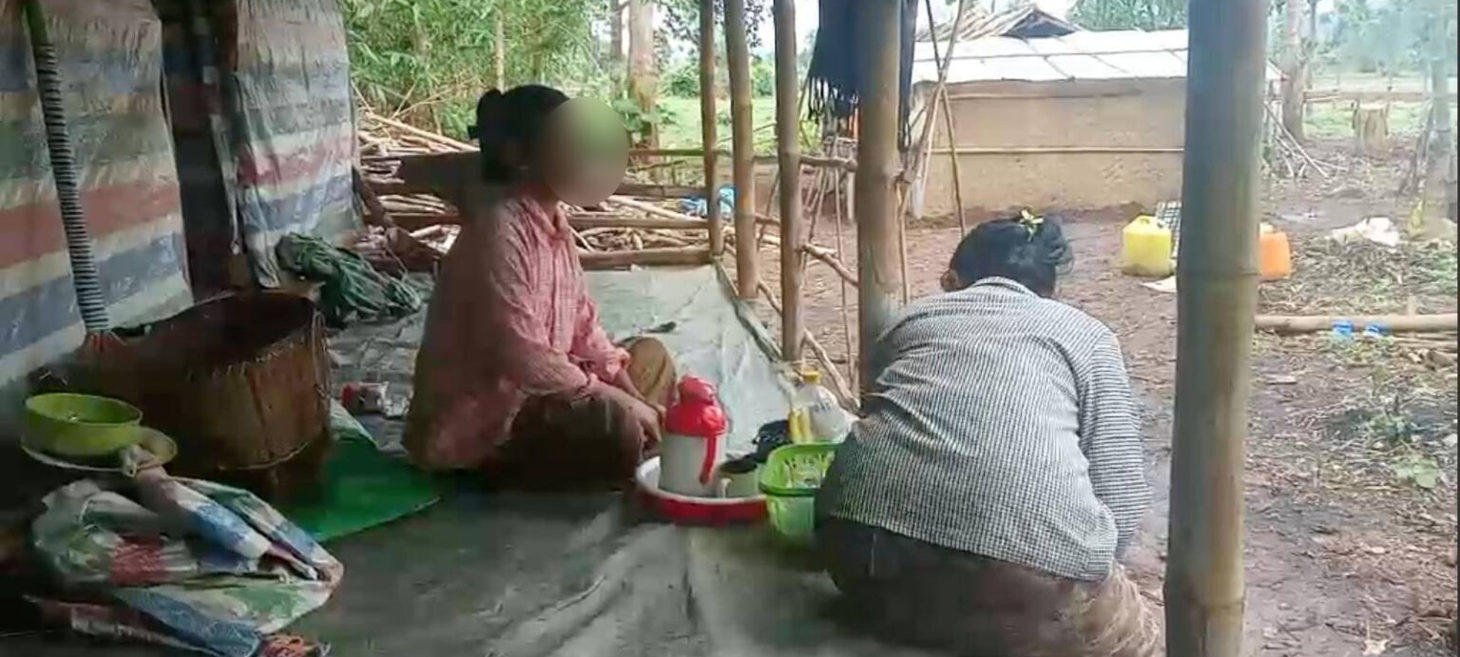
From Farmers to IDPs in Karenni State
Two former farmers, Daw Hto Myar and Daw Myar Mo, became internally displaced persons (IDPs) in Karenni State after fighting in their villages in Pinlaung Township, southern Shan State, forced them to flee. Their homes and livelihoods were destroyed by junta soldiers and artillery fire, leading to significant financial losses, emotional distress, and severe food insecurity in the IDP camp. Both women struggle with the uncertainty of their future, including the impossibility of returning home or finding new work, but express a commitment to enduring for the country's long-term peace.
Natural Disaster
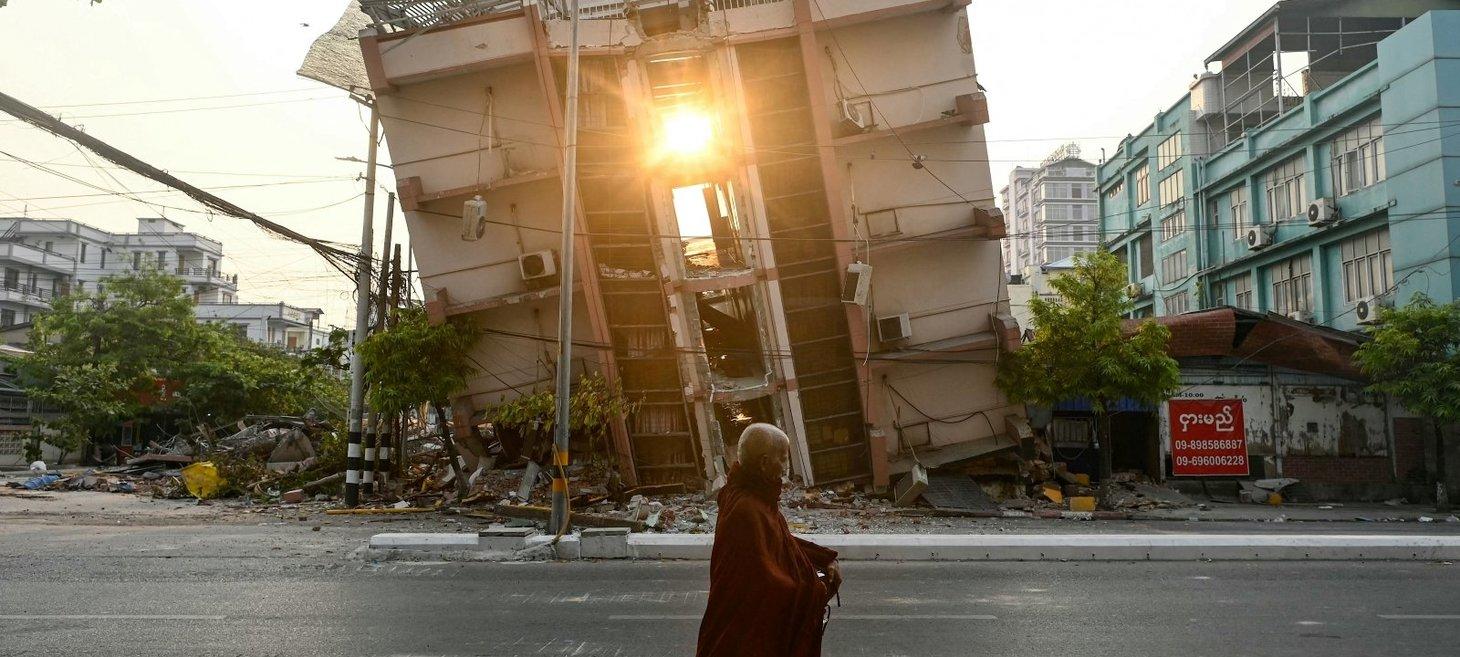
‘Ticking time bomb’: Shoddy post-quake reconstruction puts more Myanmar lives at risk
A 7.7-magnitude earthquake struck central Myanmar on March 28, causing extensive damage to over 60,000 houses, nearly 7,000 schools, and about 570 hospitals and clinics, particularly in Mandalay and Nay Pyi Taw. Post-quake reconstruction is severely hampered by bureaucratic delays, pervasive corruption, a shortage of skilled workers, and a lack of quality building materials, leading to many damaged structures awaiting repairs or demolition and owners resorting to bribes for renovation approvals. This widespread corner-cutting, including the use of unregulated builders and substandard materials like bamboo instead of iron bars, results in low-quality buildings that pose a "ticking time bomb" and significantly increase the risk of collapse in future seismic events, despite the existence of the Myanmar National Building Code.
Natural Resources

Myanmar Wa State Tin Production Resumption Meeting Impacts Prices
Myanmar's Wa State tin production resumption efforts are significantly impacting global tin markets, but actual output remains limited due to challenges like Thailand's transit ban, regulatory hurdles, and infrastructure limitations. This has led to notable volatility in SHFE and LME tin futures, with initial price drops often followed by recoveries, though physical tin trading remains subdued as downstream buyers show weak willingness to restock. The short-term outlook for tin prices is expected to be fluctuating but generally weak due to ongoing supply and demand uncertainties, with Myanmar's critical role as a major tin ore supplier making its production progress a key price catalyst.
Weather & Environment
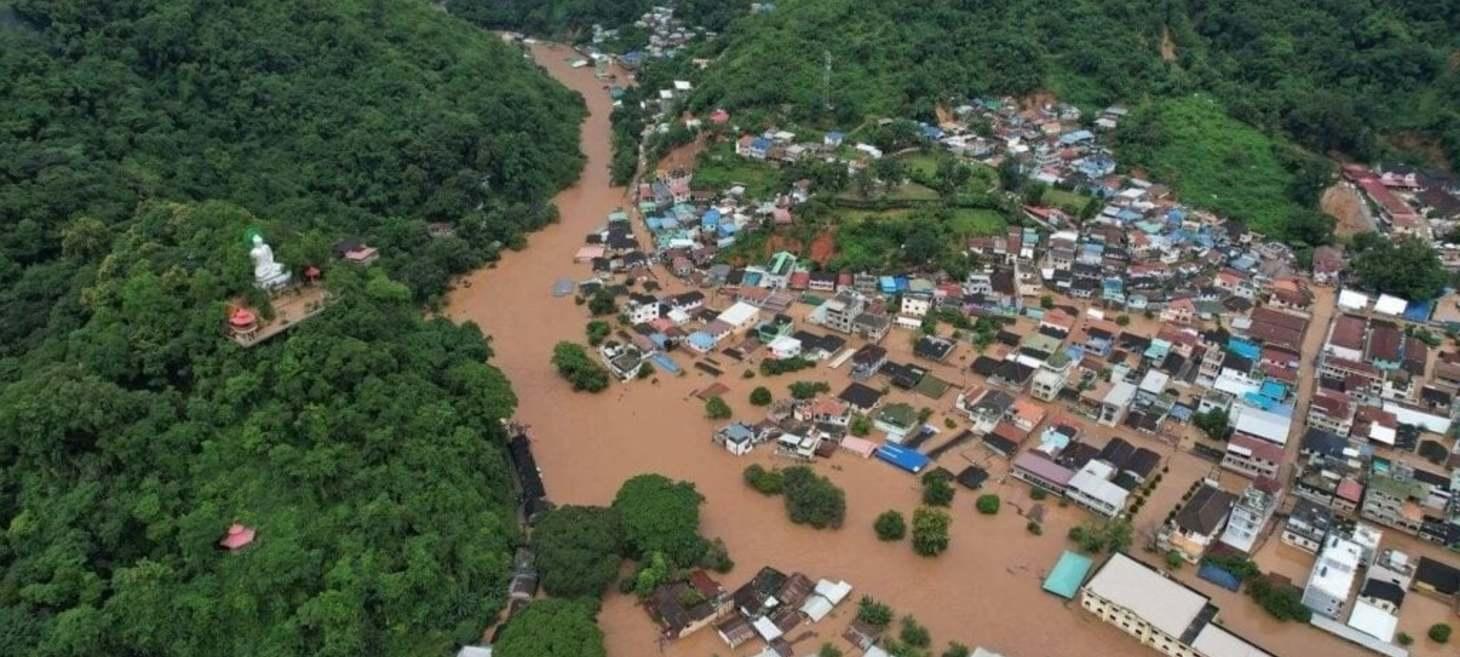
Communities at Risk as Cross-Border Mining Pollutes Kok River
Cross-border mining operations, primarily for rare earth elements in Mong Yawn and Mong Bawk townships in eastern Myanmar, are severely polluting the Kok River. This contamination, linked to Chinese companies and protected by the UWSA, has led to toxic floods and the presence of dangerous levels of heavy metals like arsenic and lead in the water, devastating agriculture and posing significant health risks to over 370,000 people in both Myanmar and Thailand. Affected communities, particularly in Thailand's Chiang Rai and Mae Ai provinces, are calling for the mines to be shut down and for government action to address the environmental and health crisis.